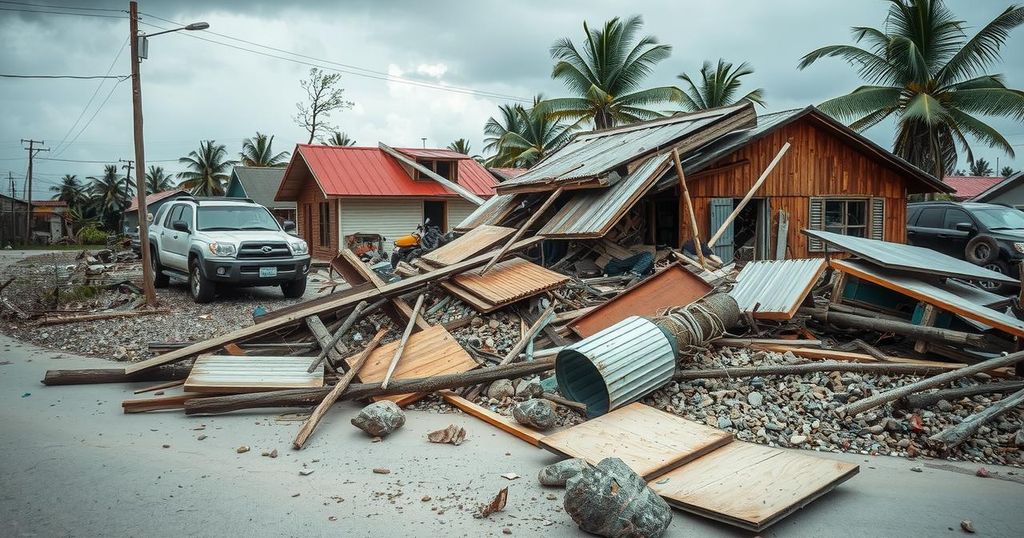World news
AFRICA, CABO DELGADO, CHI, CHIDO, EMERGENCY RESPONSE, EUROPEAN UNION, HURRICANE BERYL, LUISA MEQUE, MAPUTO, ME, MEQUE, MOZAMBICAN, MOZAMBIQUE, NAMPULA, NATIONAL INSTITUTE FOR DISASTER RISK MANAGEMENT AND REDUCTION, NATIONAL INSTITUTE OF RISK AND DISASTER MANAGEMENT, NATURAL DISASTER, NATURAL DISASTERS, NIASSA, RFI, TETE
Michael Grant
0 Comments
Fatalities and Destruction Follow Cyclone Chido in Mozambique
Cyclone Chido has caused at least 34 fatalities and extensive damage across Mozambique, displacing thousands and destroying thousands of homes. Despite weakening, authorities warn of ongoing heavy rains and winds while calling for urgent humanitarian support.
Cyclone Chido has wreaked havoc across Mozambique, claiming the lives of at least 34 individuals and displacing thousands. The National Institute of Risk and Disaster Management confirmed the grim toll following the cyclone’s landfall earlier this week, which resulted in substantial damage to crucial infrastructure such as homes and roads. The cyclone’s initial impact was felt in the northern province of Nampula, where many fatalities occurred. The President of the National Institute for Disaster Risk Management and Reduction, Luisa Meque, issued a call for urgent assistance as the storm transitions to a severe weather event while still posing threats through heavy rains and strong winds.
Authorities have reported 319 injuries and the destruction of nearly 23,600 homes and 170 fishing boats, impacting approximately 175,000 people. Cyclone Chido initially struck the Cabo Delgado province and has now moved towards the provinces of Tete and Niassa. Meque has urged communities to remain vigilant and attentive to safety alerts as the situation evolves. Additionally, humanitarian organizations, including UNICEF, highlight the critical risks faced by children and families, asserting that countless individuals may lose their homes or access to essential services amid this disaster.
Cyclone Chido represents one of the most significant weather events to impact Mozambique in the past decade. The country, located in Southern Africa, frequently experiences cyclones due to its geographical positioning along the Indian Ocean. Previous cyclones have devastated similar vulnerable regions, exacerbated by ongoing local conflicts and socio-economic challenges. The most recent cyclone’s fallout not only endangers lives but also threatens the livelihoods of communities already struggling with underlying issues. With Mozambique’s infrastructure often unable to withstand such natural disasters, the government and international agencies emphasize the need for rapid response and recovery efforts.
In summary, Cyclone Chido has resulted in a tragic loss of life and widespread destruction in Mozambique, particularly affecting vulnerable populations in the northern provinces. Authorities are intensifying efforts to provide aid and support affected communities as the cyclone’s impact continues to unfold. The situation calls for a coordinated response to assist families in need while addressing the long-term rebuilding and recovery required after such catastrophic events.
Original Source: www.rfi.fr




Post Comment